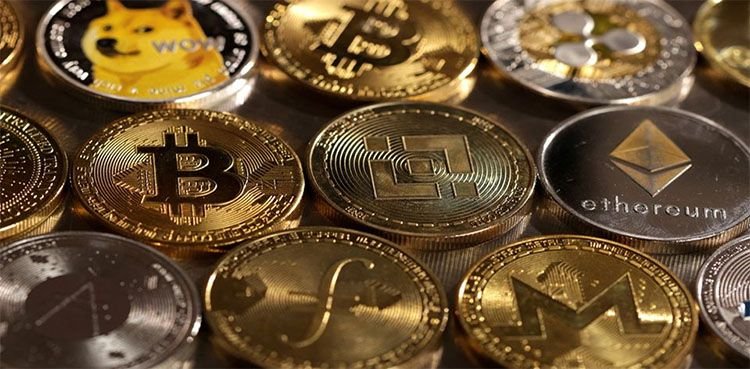Russia Blocks Cryptocurrency Exchange BestChange: Analyzing the Ban and Its Implications
In a surprising move, Russia’s communications watchdog, Roskomnadzor, has blocked the cryptocurrency exchange platform BestChange. The platform has expressed its uncertainty regarding the specific reasons for the ban, despite actively engaging with the central bank to resolve the issue. This development highlights the complex and often contradictory nature of Russia’s cryptocurrency regulations, where the use of digital assets is both restricted and, in some cases, legalized for specific transactions. This article delves into the circumstances surrounding BestChange’s ban, the broader regulatory landscape, and the implications for cryptocurrency usage in Russia.
Understanding the Ban on BestChange
BestChange confirmed that its website, bestchange.ru, had been blocked in Russia by Roskomnadzor, although it remains unclear why the action was taken. According to the platform, it has been in direct contact with the central bank and regulators to determine the cause and seek a resolution.
Roskomnadzor’s official website lists BestChange as restricted, while reports from the RIA news agency suggest that the ban was due to legal violations “in the financial sphere.” However, without explicit reasons provided by the regulator, speculation abounds. Some potential reasons include:
- Stricter Cryptocurrency Regulations – Russia has been tightening its stance on cryptocurrency exchanges, particularly regarding advertising and circulation of digital assets.
- Suspicious Financial Activities – Authorities might have detected suspicious transactions or activities that violate financial compliance rules.
- Association with Unauthorized Transactions – BestChange may have been linked to entities using crypto for illicit or unsanctioned activities.
Despite the block, BestChange remains optimistic about resolving the situation and reinstating its services in Russia.
Russia’s Stance on Cryptocurrency
Russia has maintained a fluctuating stance on cryptocurrency. While digital currency transactions and advertising are largely prohibited within the country, Moscow has also embraced certain aspects of cryptocurrency, such as legalizing cryptocurrency mining and allowing international payments using digital assets.
Legal Status of Cryptocurrency in Russia
- Ban on Advertising and Domestic Circulation – The Russian government prohibits the advertisement and circulation of cryptocurrencies, restricting their widespread use as a financial instrument.
- Legalization of Mining – In 2023, Russia officially recognized cryptocurrency mining and introduced taxation rules, aiming to generate an estimated 200 billion roubles ($2 billion) annually from miners.
- Use in International Trade – The government has permitted businesses to use cryptocurrencies for international transactions, providing an alternative to traditional banking systems, which face Western sanctions.
- Regulatory Uncertainty – Despite some legalization efforts, regulatory clarity remains an issue, with authorities frequently changing policies and imposing new restrictions.
Impact of the Ban on BestChange and Crypto Users
Blocking BestChange could have widespread consequences for crypto traders, investors, and businesses relying on digital assets for transactions. Here are some key implications:
1. Limited Access to Crypto Exchanges
The ban restricts Russian users from accessing one of the most widely used exchange aggregators. BestChange allowed users to compare rates for buying and selling cryptocurrencies, making transactions more efficient.
2. Increased Use of VPNs and Alternative Platforms
Russian crypto users have historically relied on Virtual Private Networks (VPNs) and proxy services to access blocked websites. With BestChange now restricted, more users may resort to decentralized exchanges (DEXs) or offshore trading platforms.
3. Uncertainty for Crypto Businesses in Russia
Crypto-related businesses may face heightened scrutiny from regulators, leading to operational challenges. The ongoing crackdown suggests that more platforms could be blocked or forced to comply with stringent regulations.
4. A Possible Shift Towards Government-Controlled Digital Assets
The Russian government is exploring the creation of a Central Bank Digital Currency (CBDC), known as the digital ruble. By restricting access to independent crypto exchanges, Russia could be paving the way for its state-controlled digital currency.
Russia’s Crypto Strategy: Balancing Control and Innovation
The Russian government’s approach to cryptocurrency reflects a broader strategy of balancing financial control with innovation. While authorities recognize the benefits of digital assets, they also seek to limit risks associated with money laundering, tax evasion, and capital flight.
1. Cryptocurrency Mining Regulations
Russia’s legalization of cryptocurrency mining was a major step towards integrating digital assets into the economy. However, Moscow later restricted mining in certain Siberian regions to prevent excessive electricity consumption and power shortages.
2. Sanctions Evasion and the Role of Crypto
Amid Western sanctions, Russia has increasingly explored cryptocurrency for international trade. With traditional banking networks facing restrictions, digital currencies offer an alternative means of conducting cross-border transactions. The government’s willingness to allow international trade with crypto stands in stark contrast to its restrictions on domestic use.
3. The Rise of the Digital Ruble
Russia’s central bank is actively working on developing a digital ruble—a state-backed cryptocurrency designed to provide a controlled, regulated alternative to private digital assets like Bitcoin and Ethereum. By tightening restrictions on independent platforms like BestChange, the government may be steering users toward its digital currency.
How Crypto Users in Russia Can Adapt
For Russian crypto users, navigating the evolving regulatory landscape requires adaptability. Here are some strategies:
1. Using Decentralized Exchanges (DEXs)
Unlike centralized platforms, decentralized exchanges (DEXs) operate without intermediaries, making them harder to regulate or block. Users may shift to DEXs for trading digital assets.
2. Leveraging VPNs for Access
Many Russian users already use VPN services to bypass government restrictions. This trend will likely continue as more platforms face potential bans.
3. Exploring Alternative Crypto Aggregators
While BestChange remains blocked, users may turn to alternative exchange aggregators to compare rates and execute transactions.
4. Keeping Up with Regulatory Updates
Crypto investors and businesses should stay informed about Russia’s regulatory landscape to ensure compliance and avoid unexpected disruptions.
Conclusion
The ban on BestChange highlights the contradictory nature of Russia’s crypto policies, where digital assets are simultaneously restricted and embraced for international trade. While authorities tighten control over domestic cryptocurrency transactions, they continue to explore its utility in bypassing Western sanctions.
For Russian crypto users and businesses, the ongoing regulatory shifts mean adaptability is key. Whether through decentralized exchanges, VPNs, or alternative platforms, the demand for crypto solutions is unlikely to diminish. As Russia moves towards implementing the digital ruble, the government’s stance on independent cryptocurrencies will likely become even more restrictive.
Ultimately, BestChange’s ban is not just about one platform—it is a reflection of Russia’s broader attempt to control digital financial systems while leveraging cryptocurrency’s potential in a politically strategic manner. Whether this approach proves sustainable in the long run remains to be seen, but for now, Russia’s crypto landscape continues to be a battleground of innovation, regulation, and economic necessity.
ALSO READ: Crisil Reports Strong Q4 Profits, Stock Rises 4.09%




